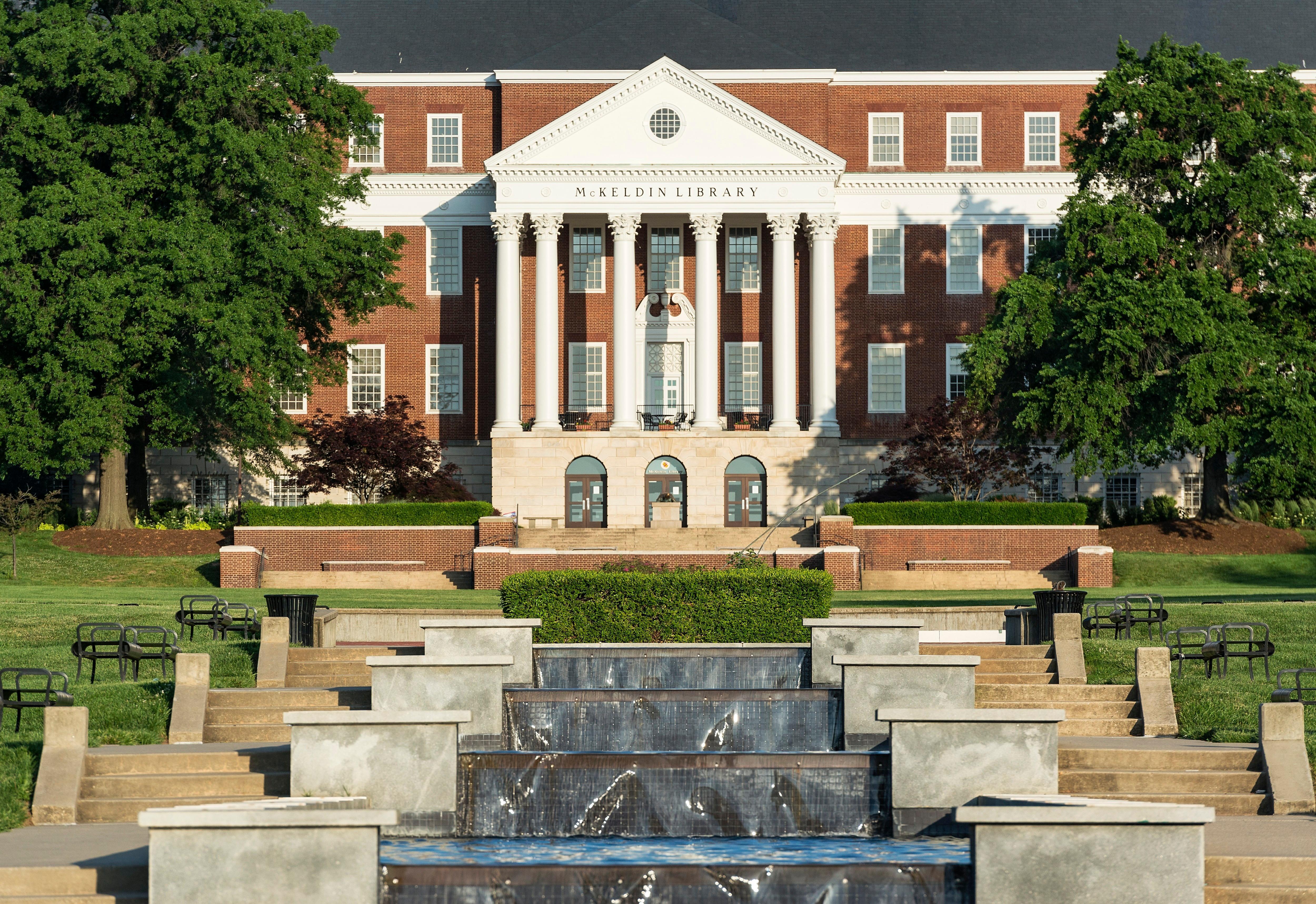
A teacher explains mathematics at a re-opened school in Germany.
College student whose dad died of coronavirus denied project extension by professor
By Mark PygasMay 7 2020, Updated 10:05 a.m. ET
A college student whose father, unfortunately, died after contracting coronavirus was denied a project extension by her professor. Saige Kratenstein, a student at the University of Maryland, took to Twitter to share her professor's response after requesting the extension.
Kratenstein, a third-year business student, informed her teachers that her father was in a critical condition but kept up with her school work as her father battled COVID-19. Unfortunately, her father, Alan Kratenstein, passed away as a result of the disease on April 13.
Like many of those who have lost loved ones during the global pandemic, Kratenstein was saddened that she could not physically be with her father as he battled the virus.
“Nobody understands how hard it is that I couldn’t be there… I could not say goodbye to him. I was heartbroken," Kratenstein told WUSA9.
When her father died, Kratenstein updated her teachers and asked one professor for an extension on a project. Kratenstein was so shocked by the professor's response, that she shared the email on Twitter, tagging her school.
"Try to get it done on time," the professor wrote. "That would be much better. I'd like to be consistent with all students because there are many who are having difficult times."
"I simply asked my prof for a few days extension on a project because MY DAD died as a result of COVID-19 and THIS is the response I get," Kratenstein wrote on Twitter. "DO. BETTER."
People were understandably disappointed by the response, with one writing: "I am so sorry. This is disgusting behavior and the school should be embarrassed they hired such a vile professor. The lack of human decency is appalling."
While another teacher added: "I teach graduate-level classes. What your professor did is deeply wrong and unacceptable. I’m so sorry for your loss, and that you had a professor incapable of basic decency at this moment in your life. Thinking of you and your family."
“When I read that, I thought that I was reading it wrong," Kratenstein said.
She further explained that on the day of her father's funeral, the same professor emailed her again, saying that they "would highly recommend that you attend and participate" in online Zoom classes. The professor wrote that it would "help take your mind off things and this material will be on exam 3."
"I didn't bother to continue fighting it. I guess she, in her mind, felt like everyone was going through a hard time, as she said, but I had just lost my dad," Kratenstein said. "I was definitely kind of shocked and a little taken back by it."
Kratenstein shared the email on Twitter to get a response from her university. While she did not want to name the professor, she hoped that the school would be able to prevent something similar happening in the future.
“To ensure that this doesn’t happen to anyone else and to make sure that the professors that they hire are compassionate, understanding, and human beings," she said.

McKeldin Library and fountain at the University of Maryland.
Katie Lawson, chief communications officer with UMD, told WUSA9 that they learned about the situation from Kratenstein's tweet. Since then, the vice president of student affairs, the chief of staff for student affairs, the director of the university counseling center, as well as the director of undergraduate advising, have been in touch with Kratenstein to resolve the situation.
Lawson said that on March 26, faculty members were sent emails encouraging them to “be empathetic to the students’ circumstances. Please make accommodation and be flexible as necessitated by the needs of your students.”
Following the incident, Interim Dean Ritu Agarwal sent out a further letter to faculty members.
“A Maryland Smith student, who recently lost her father, shared on social media an email exchange with a faculty member. We want to assure you that we are working to address the student’s concerns and to ensure that appropriate and compassionate accommodations are made," Agarwal's email said.
Kratenstein seems happy with the school's response, telling NBC News:
"They've checked in on me, and they're getting it all handled. My advisors have been amazing, and I'm grateful for their help."
A University of Maryland spokesperson confirmed that the school had offered Kratenstein "academic accommodations," including the extension, "as well as support services for our student’s mental and emotional health."

The Memorial Chapel at the University of Maryland.
Kratenstein doesn't think that the professor's decision was personal, as the class has around 300 students. But she added that her father would have wanted her to speak out about it.
“I think he would be very proud of me for sticking up for myself in the situation with my professor because he would agree that nobody should be treated that way, and nobody should be talked to that way," she said.
Kratenstein added that other faculty members whom she had asked for extensions were much more accommodating.
"A lot of them said not to even worry about the rest of the semester and that they could exempt me from everything," Kratenstein said. "They told me to focus on my family and were very considerate and understanding. She was the only one I didn't receive a compassionate response from."
